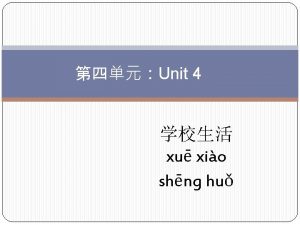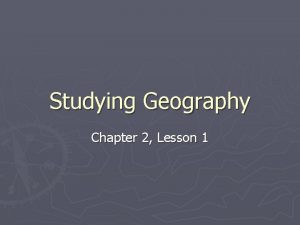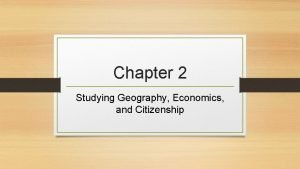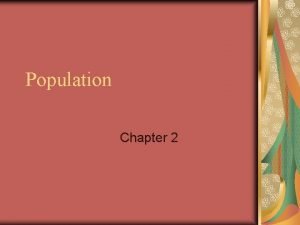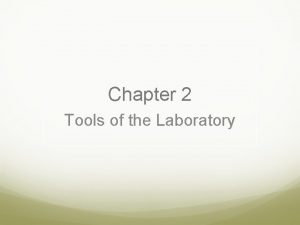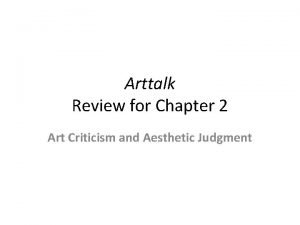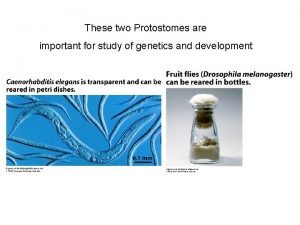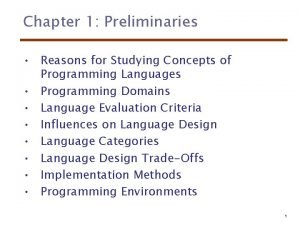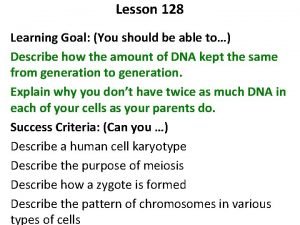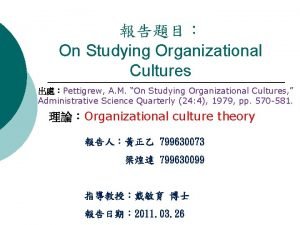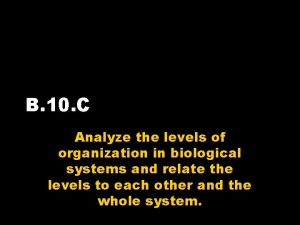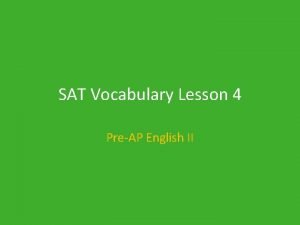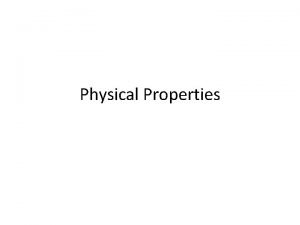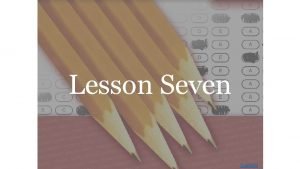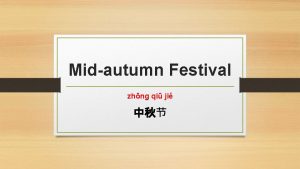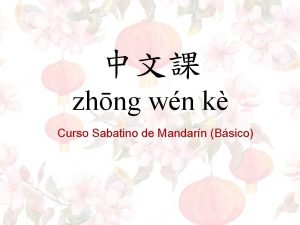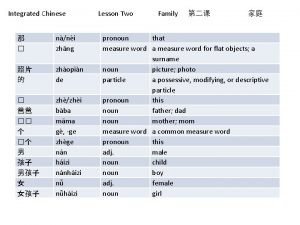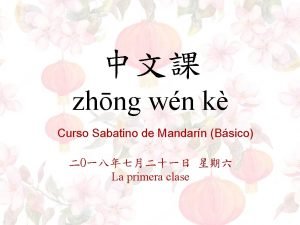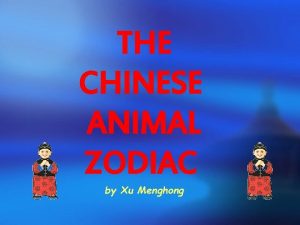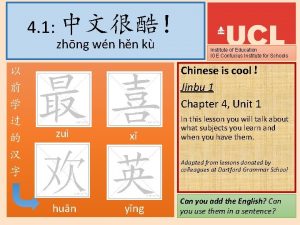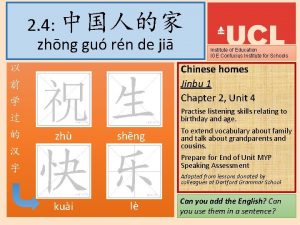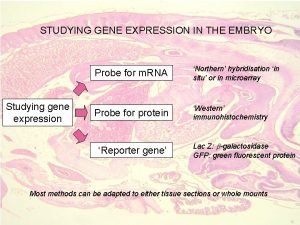D k xu zhng wn Lesson Seven Studying














































- Slides: 46

Dì kè: xué zhōng wén 第七课:学中文 Lesson Seven: Studying Chinese

Duì huà Nǐ kǎoshì kǎo de zěnme yàng 对话一:你考试考得怎么样?How did you do on the exam?

Duì huà Zhǔnbèi zhōngwén kè 对话二:准备中文课 Preparing for a Chinese Class

Dì kè: xué zhōng wén 第七课:学中文 Lesson Seven: Studying Chinese LEARNING OBJECTIVES: In this lesson, you will learn to use Chinese to 1. Comment on one’s performance in an exam; 2. Comment on one’s character writing; 3. Talk about one’s experience in learning Chinese vocabulary and grammar; 4. Talk about one’s study habits; 5. Remark on typical scenes from one’s language class.

Dì kè: xué zhōng wén 第七课:学中文 Lesson Seven: Studying Chinese Forms & Accuracy: 1. Descriptive Complements (I): 得 Ex 写得很好 2. The Adverbs 太 (tài) and 真 (zhēn) 3. The Adverb 就 (jiù) (I) 4. Double Objects 5. Ordinal Numbers 6. 有(一)点儿 (yǒu{yì}diǎnr) 7. 怎么 (zěnme) in Questions 8. The 的 (de) Structure (I) Ex 男的、容易的= a noun 9. The Use of Nouns and Pronouns in Continuous Discourse


学习中文 • 学习 XUÉXÍ ZHŌNGWÉN (STUDY CHINESE) study • 念 read • 课文 text • 生词 new word(s) • 语法 grammar • 预习 preview • 写 write • 练习 practice • 教 teach • 录音 recording • 复习 review • 懂 understand • 功课 homework 作业 • 准备 prepare • 难 difficult • 笔、纸 pen、paper












跟 GĒN (WITH) 见面 JIÀNMIÀN (TO MEET) 你跟我见面。 You meet with me. 王朋想跟李友见面。 Wangpeng would like to meet with Liyou. 王朋不想跟李友见面。 Wangpeng wouldn’t like to meet with Liyou.

qǐng gēn wǒ shuō Please repeat after me.

qǐng gēn wǒ lái

请你这样跟我做 qǐng nǐ zhè yàng gēn wǒ zuò Please do this with me.

难 NÁN (DIFFICULT) ADJECTIVE Q: 中文难nán 不难nán? 学xué 写xiě 懂dǒng 教jiāo



慢 màn (slow; slowly) adjective; adverb Lǎoshī shuōhuà kuài háishì màn? Q: 老师说话快还是慢? Does the teacher speak fast or slowly? Lǎoshī shuōhuà yǒu yīdiǎn er kuài A: 老师说话有一点儿快。 The teacher speaks a little bit fast. A: 老师说话有一点儿慢。 Lǎoshī shuōhuà yǒu yīdiǎn er màn The teacher speaks a little bit slowly.



Measure word for long, thin, inflexible objects such as pens, rifles, etc. 枝 zhī

Measure word for flat objects, paper, pictures, etc. 张 zhāng


得 DE (PARTICLE) TO FORM DESCRIPTIVE COMPLEMENT Tā shuō zhōngwén shuō de hěn hǎo • 他说中文说得很好。 He speaks Chinese very well. Tā xiězì xiě dé hěn piàoliang • 她写字写得很漂亮。 She write characters beautifully. Tā chànggē chàng dé hěn hǎo • 她唱歌唱得很好。 She sings very well.

得 DE (PARTICLE) TO FORM DESCRIPTIVE COMPLEMENT Tā tiàowǔ tiào de zěnme yàng Q:他跳舞跳得怎么样? How does he dance? Tā tiàowǔ tiào de A:他跳舞跳得很好/真好/太好了。 He dances very well / really well / wonderfully.


就 JIÙ (PRECISELY, EXACTLY) ADVERB To indicates that the second action happens as soon as the first one is completed. 我做了功课以后就去朋友家玩儿。 Wǒ zuò le gōngkè yǐhòu jiù qù péngyou jiā wánr. (I will go to my friend’s for a visit right after I fi nish my homework. )

就 JIÙ (PRECISELY, EXACTLY) ADVERB To suggest the earliness, briefness, or quickness of the action. 他明天七点就得上课。 Tā míngtiān qī diǎn jiù děi shàng kè. (He has to go to class [as early as] at 7: 00 am tomorrow. ) 我们八点看电影,他七点就来了。 Wǒmen bā diǎn kàn diànyǐng, tā qī diǎn bàn jiù lái le. (We [were supposed to] see the movie at 8: 00, but he came [as early as] 7: 00. )


就 JIÙ V. S. 才 CÁI A: 八点上课,小白七点就来了 。 (Class started at 8: 00, but Little Bai came [as early as] 7: 00. ) B: 八点上课,小王八点半才来。 (Class started at 8: 00, but Little Zhang didn’t come until 8: 30. ) A: 我昨天五点就回家了。 (The speaker thought 5: 00 was early. ) B: 我昨天五点才回家。 (The speaker thought 5: 00 was late. )

有一点儿 (somewhat, rather; a little bit) Nǐ juédé zhōngwén kè zěnme yàng? Q: 你觉得中文课怎么样? A: 我觉得中文课有一点儿难。 Wǒ juéde Zhōngwén kè yǒu yì diǎnr nán (I think Chinese is a little bit difficult. ) A: 我觉得中文课不容易。

有一点儿 (somewhat, rather; a little bit) Zhège túshū guǎn zěnme yàng? (Xiǎo) Q: 这个图书馆怎么样?(小) How is this library? Zhège túshū guǎn yǒu yīdiǎn er xiǎo. A: 这个图书馆有一点儿小。 This library is a bit small.






HOW DOES IT GO WITH YOUR CHINESE STUDY? Q: …怎么样? A: 不错 还可以 很好 bú zuò hái kě yǐ quite good ok hěn hǎo very good
 Zhng
Zhng Chapter 2 lesson 1 studying geography
Chapter 2 lesson 1 studying geography Chapter 2 lesson 1 studying geography
Chapter 2 lesson 1 studying geography Lesson 1 studying geography
Lesson 1 studying geography Seven heavenly virtues mal
Seven heavenly virtues mal Hunter's seven steps of lesson planning
Hunter's seven steps of lesson planning Researchers who are studying a new shampoo formula
Researchers who are studying a new shampoo formula Demographic transition def
Demographic transition def Hay guide chart example
Hay guide chart example Jummah namaz
Jummah namaz Studying in sweden as an eu citizen
Studying in sweden as an eu citizen Studying our living planet
Studying our living planet A student is studying the ecology of a playa lake
A student is studying the ecology of a playa lake Chapter 24 studying the sun
Chapter 24 studying the sun The five i's of studying microorganisms
The five i's of studying microorganisms Section 1 ecologists study relationships
Section 1 ecologists study relationships Juvenile delinquency objectives
Juvenile delinquency objectives Art talk chapter 2 review answers
Art talk chapter 2 review answers Arthropod groups
Arthropod groups Module 11 studying the brain and older brain structures
Module 11 studying the brain and older brain structures Culture or way of living station 1
Culture or way of living station 1 Benefits of studying in a quiet place
Benefits of studying in a quiet place Imagine you are studying english
Imagine you are studying english Swb uiuc
Swb uiuc Kendra is studying the energy pyramid shown
Kendra is studying the energy pyramid shown Importance of learning literature
Importance of learning literature Reasons for studying concepts of programming languages
Reasons for studying concepts of programming languages Studying
Studying Lesson 128
Lesson 128 Studying
Studying Section 1 studying viruses and prokaryotes
Section 1 studying viruses and prokaryotes Why are chemists interested in studying thermochemistry?
Why are chemists interested in studying thermochemistry? Schein’s three levels of culture
Schein’s three levels of culture A polysaccharide you are studying contains unbranched
A polysaccharide you are studying contains unbranched A student is studying the ecology of a playa lake
A student is studying the ecology of a playa lake Lesson outline lesson 3 describing circuits answers
Lesson outline lesson 3 describing circuits answers Kind of fault
Kind of fault Lesson outline lesson 2 aquatic ecosystems answer key
Lesson outline lesson 2 aquatic ecosystems answer key Microteaching lesson plan examples
Microteaching lesson plan examples L 101 lesson 2
L 101 lesson 2 The chappals were given to the beggar because
The chappals were given to the beggar because Overall state of well being or total health
Overall state of well being or total health Weather forecast lesson 3 outline answers
Weather forecast lesson 3 outline answers Sat vocabulary lesson 4
Sat vocabulary lesson 4 Lesson outline lesson 2 - physical properties answer key
Lesson outline lesson 2 - physical properties answer key The science duo physical and chemical changes
The science duo physical and chemical changes Lesson outline climates of earth
Lesson outline climates of earth
